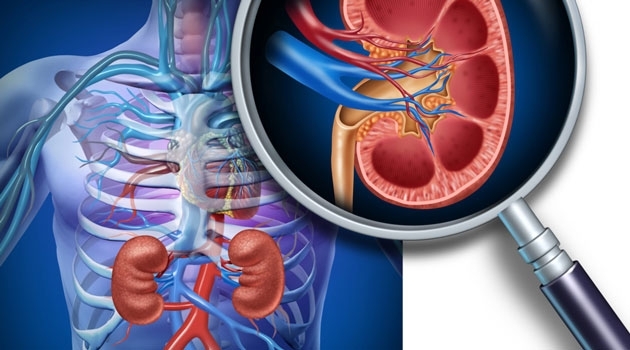Safer dialysis with personalised assessment
Every third patient with severe kidney failure and receiving dialysis is fluid overloaded after dialysis treatment. Jenny Stenberg has developed a decision aid to assist in personalised fluid regulation. Her findings are presented in her doctoral thesis.
Hospital and researcher at Uppsala University.
Patients with severe kidney failure receive dialysis treatment for 4–5 hours, three times a week. Dialysis is used to clean the blood from toxins but also to regulate fluid balance.
“Dialysis is a life-saving treatment, and for many patients, it is an alternative to a kidney transplant. Dialysis patients, however, have a significantly reduced survival rate with 20 per cent annual mortality. A contributing factor is that every third patient is fluid overloaded after dialysis treatment,” explains Jenny Stenberg, a nurse at Uppsala University Hospital and a researcher at Uppsala University.”
Stenberg has worked for 14 years as a dialysis nurse and has seen first-hand the need for tools to address this problem.
Target weight changes often
Patients weigh themselves before each treatment and have a target weight. The nurse performs a simple subtraction to determine how much fluid needs to be removed. It is often 2–3 litres, but it is important to be aware of any changes in weight.
“If the patient increases in weight, there is a risk of overestimating how much fluid to remove, which can lead to a fall in blood pressure. This increases the risk of blood clots and impacts quality of life. In cases of weight loss, there is a risk of missing that the patient is undernourished. This can lead to fluid overload, which eventually can cause high blood pressure and heart failure.”
While working on her doctoral thesis, she developed the Recova decision aid, which assumes that the target weight needs to be changed and assessed often. It uses the same technique found in many gyms: a scale that measures body composition with fat, water and muscles.
“But you should not be overly confident with the results since dialysis patients are a very heterogeneous group with many underlying illnesses. We need to use technology but have to combine it with clinical assessments.”
Support in interpreting the technology
The clinical assessments often use intuition and unspoken knowledge. Stenberg wanted to put into words what is included in the clinical assessment and developed a seven-point scale that she has incorporated into an assessment algorithm. A score is determined by documenting these points and including the patient’s self-assessment of how they experience their ailment. There are threshold limits for when to remeasure body composition and for when to involve a doctor.
“These are assessments that are already done but we want to expand on them and improve communication. Having a common language can improve the dialogue with the doctor and communication with patients. It is important to utilise the patients’ own experience of their illness.”
Added to the journal system
Working with the Care Documentation Unit at Uppsala University Hospital, the seven points have been added to the Cosmic journal system for use by dialysis nurses. With support from UU Innovation, Jenny Stenberg has also begun working to develop an app, but so far technical support is lacking to include it in the care system.
“In the autumn, we are starting to use the symptom estimation clinically. The next step will be to incorporate the technology and use it in an app, something we are working on together with researchers in Canada.”
After completing her doctoral degree in May, she received a two-year postdoctoral position at the University, so she will continue her research and is involved in a project looking at migration and health.
Annica Hulth
Kidney failure and dialysis
- The kidneys are the body’s waste treatment plant and can filter about 180 litres of body fluid a day. This capacity is often lost with kidney failure.
- About 1 in 10 people have diminished kidney function, both in Sweden and internationally.
- In Sweden, about 3,300 people with severe kidney failure receive 4–5 hours of blood dialysis three times a week, a treatment that replaces the job of the kidneys.
- This treatment means the body is cleansed artificially from toxic waste products and that the salt and fluid balances are regulated.

